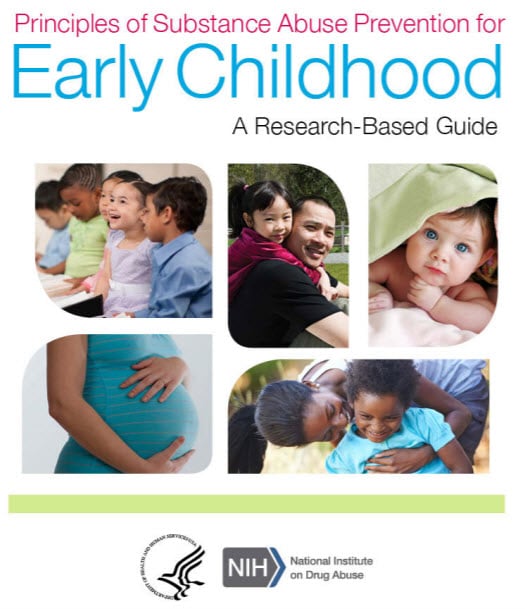 Recent research by the National Institute of Drug Abuse (NIDA) indicates that substance abuse prevention in early childhood can help prevent drug use and other unhealthy behaviors and that intervening early in childhood can alter the life course trajectory in a positive direction.
Recent research by the National Institute of Drug Abuse (NIDA) indicates that substance abuse prevention in early childhood can help prevent drug use and other unhealthy behaviors and that intervening early in childhood can alter the life course trajectory in a positive direction.
The NIDA’s online guide, Principles of Substance Abuse Prevention for Early Childhood, offers research-based principles that affect a child’s self-control and overall mental health, starting during pregnancy through eight years old. It addresses the major influences on a child’s early development such as lack of school readiness skills, insecure attachment issues, and signs of uncontrolled aggression in childhood behaviors. Special attention is given to a child’s most vulnerable periods during sensitive transitions, such as a parents’ divorce, moving to a new home, or starting school.
“Thanks to more than three decades of research into what makes a young child able to cope with life’s inevitable stresses, we now have unique opportunities to intervene very early in life to prevent substance use disorders,” said NIDA Director Nora D. Volkow, M.D. “We now know that early intervention can set the stage for more positive self-regulation as children prepare for their school years.”
Principles of Substance Abuse Prevention for Early Childhood is published by the NIDA, part of the National Institute of Health.
The Council on Recovery’s Center for Recovering Families offers children’s services as part of our broad range of programs. Read more here or call 713-914-0556 for more information.
